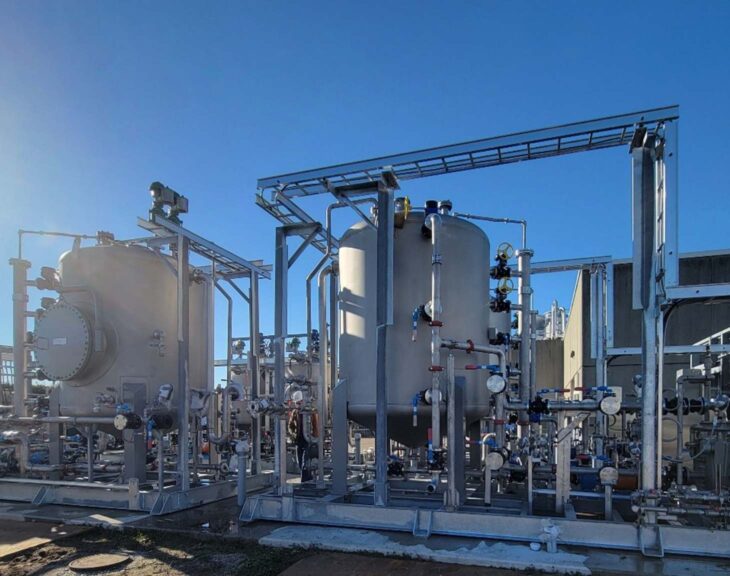

Low Carbon Bio + Synthetic Fuels
Boosting biomethane and producing green hydrogen from liquid waste
THE SOLUTION
Metro Vancouver is piloting a technology that enhances microbial activity in anaerobic digestion of wastewater to create more renewable natural gas. The Syntrophic Enrichment of Enhanced Digestion (SEED) Reactor uses electro-conductive materials that create optimum growing conditions for methane-producing microbes to increase biomethane production. Injecting green hydrogen generated from wastewater byproducts into the SEED Reactor activates other microbes that convert carbon dioxide into biomethane.
The renewable natural gas produced from a single digester with this technology would reduce greenhouse gas emissions by thousands of tonnes per year. After validation, the technology could be adopted by up to 180 anaerobic digestion facilities in Canada and 1600 in the US.
This project will take place at the Lulu Island Wastewater Treatment Plant in Richmond, BC
- PROJECT STATUS
- Active
- PROJECT CATEGORY
- Low Carbon Bio + Synthetic Fuels
- FUNDING RECIPIENT
- Metro Vancouver
- CICE FUNDING AMOUNT
- $800,000
- PROJECT VALUE
- $4,622,000
-
“Metro Vancouver is transforming wastewater into low carbon fuels that reduce greenhouse gas emissions. CICE funding will help Metro Vancouver pilot new innovations that harness natural microbes to increase production of renewable natural gas, and, by adding hydrogen, also convert waste carbon dioxide into biomethane.”
VISIT METRO VANCOUVER
